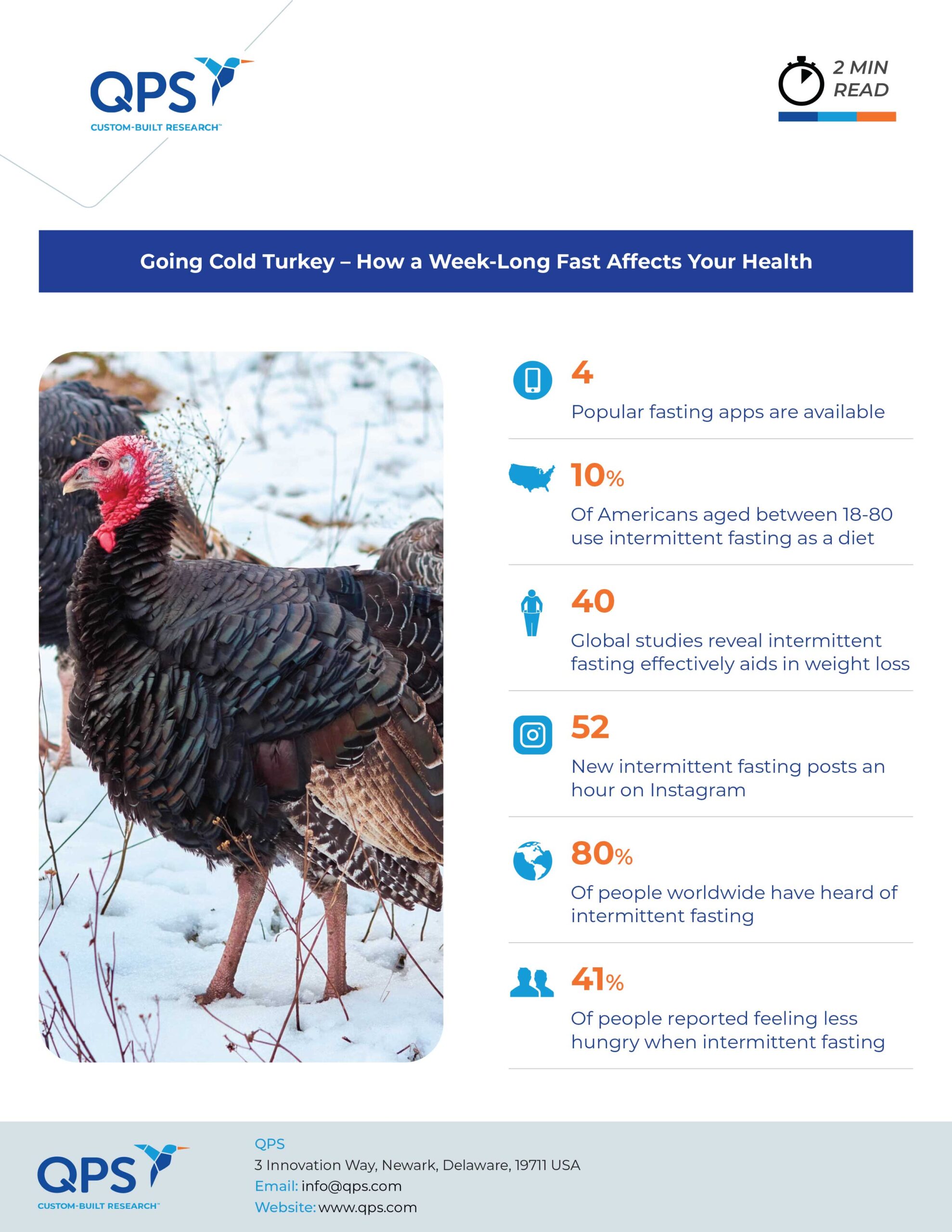Advocates of fasting point to the potential health and longevity benefits, often citing results from animal studies. However, the impact of prolonged calorie restriction on the human body is less clear. A study published in Nature Metabolism reported on the results obtained when 12 healthy non-smoking volunteers completed a seven-day fast, drinking only water. The researchers reported that changes in blood protein levels suggest potential health benefits, and some risks, are associated with going for an extended period without food.
An Experiment in Fasting
To evaluate the body’s response to fasting, the researchers measured changes in approximately 3,000 circulating blood proteins each day, starting two days before the fasting period and including three days after it ended. The researchers saw no significant changes for the first few days of the weeklong fast. Then, after three days, a notable shift occurred. Stored fat replaced glucose as the primary energy source, leading to an average weight loss of 5.7 kilograms (12.6 pounds). This weight loss persisted even after the participants resumed eating.
Molecular Shifts
In addition to the weight loss, the researchers observed significant changes in the levels of hundreds of molecular compounds. Across the body’s systems, one in three proteins observed had significant changes during the seven days. Three days after the fasting period ended, the blood levels of 66 proteins remained significantly different compared to the pre-fasting days. The changes occurred consistently in all 12 participants. “For the first time, we’re able to see what’s happening on a molecular level across the body when we fast,” said Claudia Langenberg, Director of the Precision Health University Research Institute (PHURI), in a statement. “Our results provide evidence for the health benefits of fasting beyond weight loss, but these were only visible after three days of total caloric restriction – later than we previously thought,” she added.
By studying changes in the protein levels, the researchers uncovered both positive and negative health effects. The participants had lower levels of switch-associated protein 70 (SWAP70), which researchers suggested could partially explain the pain relief reported by rheumatoid arthritis patients during prolonged fasting. Hypoxia up-regulated 1 (HYOU1), associated with coronary artery disease, also decreased, hinting at potential heart health benefits. However, not all changes were beneficial; coagulation factor XI increased, potentially increasing thrombosis risk.
Future Implications
Study co-author Maik Pietzner, PHURI Health Data Chair and co-lead of the Computational Medicine Group at the Berlin Institute of Health at Charité, noted the potential for developing fasting-based treatments. “While fasting may be beneficial for treating some conditions, often times, fasting won’t be an option for patients suffering from ill health. We hope that these findings can provide information about why fasting is beneficial in certain cases, which can then be used to develop treatments that patients are able to do,” Pietzner said in a statement.
Benjamin Horne, a cardiovascular specialist at the Intermountain Medical Center Heart Institute in Salt Lake City, Utah, who was not involved in the research, authored an analysis of the study, which was published in the same journal. He described the study as “an important landmark in investigations of fasting” and wrote that “fasting is available to all humans at no cost, thus — when practiced safely — the potential benefits are available regardless of financial means, education, race, ethnicity, access to care, nation of residence or nation of origin.” Pointing to the study results, he also suggested that periods of extended fasting could be used as a health intervention to counter cardiometabolic disease, noting that further research is needed.
Did you enjoy this blog post? Check out our other blog posts as well as related topics on our Webinar page.
QPS is a GLP- and GCP-compliant contract research organization (CRO) delivering the highest grade of discovery, preclinical and clinical drug research development services. Since 1995, it has grown from a tiny bioanalysis shop to a full-service CRO with 1,100+ employees in the U.S., Europe and Asia. Today, QPS offers expanded pharmaceutical contract R&D services with special expertise in pharmacology, DMPK, toxicology, bioanalysis, translational medicine and clinical development. An award-winning leader focused on bioanalytics and clinical trials, QPS is known for proven quality standards, technical expertise, a flexible approach to research, client satisfaction and turnkey laboratories and facilities. Through continual enhancements in capacities and resources, QPS stands tall in its commitment to delivering superior quality, skilled performance and trusted service to its valued customers. For more information, visit www.qps.com or email info@qps.com.





